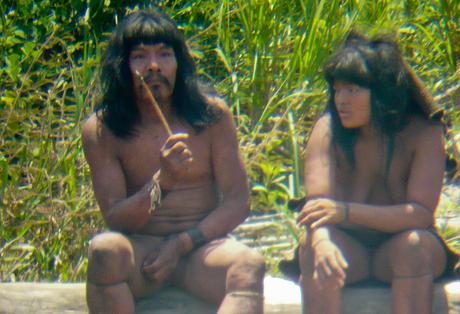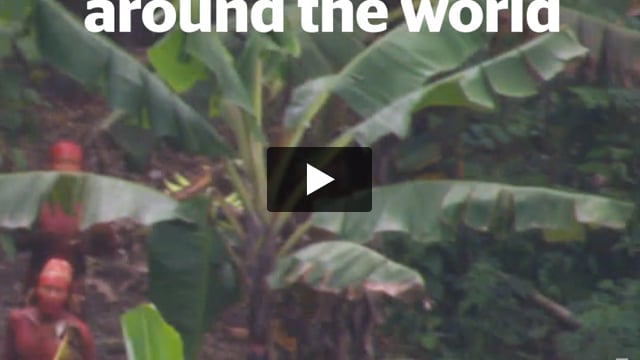International NGOs unite against oil giants
November 16, 2010
 © Survival
© SurvivalThis page was last updated in 2010 and may contain language which is now outdated.
Survival has sent a letter signed by more than fifty leading NGOs to oil companies Perenco, Repsol-YPF and ConocoPhillips to demand their immediate withdrawal from an area inhabited by uncontacted tribes in Peru.
Amazon Watch and Save America’s Forests join a global array of NGOs that have pledged their support to stop the companies from working in oil blocks 39 and 67 in the northern Peruvian Amazon.
Anthropological research has shown that the area is inhabited by at least two uncontacted tribes, who lack immunity to diseases brought by outsiders and who could face extinction if contact is made.
Despite strong opposition from Peru’s Indigenous organizations, Anglo-French Perenco has applied to the Peruvian Energy Ministry to build a pipeline in block 67 that will cut across 207 kms of land and affect the rainforest for 500 meters on either side.
Meanwhile, Spanish-Argentine Repsol-YPF along with its US partner, ConocoPhillips, has applied to cut 454 kms of seismic lines and construct 152 heliports in block 39.
‘The companies involved are gravely endangering the lives not only of the Indians, but also of their own workers,’ the letter says. Several oil workers have reportedly been killed by uncontacted Indians in the Yasuní National Park, which lies adjacent to block 39, just across the border in Ecuador.
Uncontacted Indians are thought to traverse the border between Peru and the Yasuní Park, where a large reserve has been set aside for them by the Ecuadorian government.
Other organizations that have signed the petition include America’s Rainforest Action Network, Germany’s Rettet den Regenwald, Spain’s Repsolmata and Peru’s CAOI.
Survival’s Director, Stephen Corry, said today, ‘Operating in this area demonstrates an utter disregard for some of the most vulnerable people on the planet, who may feel forced to defend their territory. If the companies have any sense, they will leave the area to its rightful owners before lives, and reputations, are ruined.’




